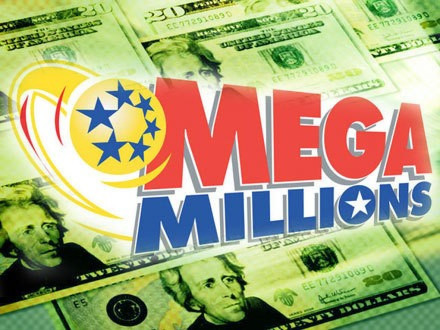Mega Millions Lottery: A Curse And Plague On The Poor
OPINION

The Mega Millions lottery has jumped to a world record of $540-million (as of early Thursday evening). Assuming no one has the winning ticket in the next round, it is conceivable that the pot could soon reach the $1-billion level, which would make the current craze for buying lottery tickers spiral completely out of control.
I see nothing wrong with people occasionally playing the lottery --- it’s a fun and harmless diversion.
However, the lottery has a very, very dark underside.
Playing the lottery is practically a religion among poor people in the United States. It is yet another corrosive addiction that preys upon the greed and hopeless dreams of those trapped in poverty.
I am reminded of a report that emerged two years ago from The Consumerist which suggested that poor people in the U.S. – those earning $13,000 or less – spend an astounding 9 percent of their income on lottery tickets.
Another study from Wired magazine suggested that on average households making below $12,400 a year spend 5 percent of their wages on lotteries --- making this “harmless” game a “deeply regressive tax.”
Jonah Lehrer, an author and journalist, noted “the sad positive feedback loop of lotteries. The games naturally appeal to poor people, which causes them to spend disproportionate amounts of their income on lotteries, which helps keep them poor, which keeps them buying tickets.”
Moreover, a survey by Opinion Research Corporation for the Consumer Federation of America and the Financial Planning Association, revealed that one-fifth (21 percent) of people surveyed thought the lottery was a practical way to accumulate wealth. (Presumably this survey include people across the class and wealth spectrum).
Studies in several states, including North Carolina and South Carolina, strongly indicate that poor people (and especially African Americans) disproportionately purchase lottery tickets.
In New York City, where I live, the state started running the lottery in 1967, ostensibly as a way to generate proceeds to help
the state’s education facilities (and also to take profits away from organized crime which had controlled ”numbers” for decades).
Reportedly, the state has generated as much as $34 billion from lotteries.
I don’t really know if this money is actually being used to build schools and hire teachers or not, but I can say without any doubt that the lottery is a scourge, just as bad as drugs, alcohol or tobacco, especially for those who are trapped in poverty and see few ways to escape their grim predicament.
Indeed, the more money they waste on the lottery, the poorer they become, making them even more desperate to keep playing.
Cornell University economist Garrick Blalock once told ABC News: Lottery sales go up as the economy gets bad — but we don't see people spending more on relatively inexpensive other forms of entertainment.
I live two blocks away from a housing project on the Upper East Side of Manhattan, which is predominantly black and Hispanic. The stores in the neighborhood virtually all offer lottery tickets for sale, even the local pharmacy.
I have watched as the people from the projects and elsewhere – virtually all of them poor minority folk – spending as much as $100 on lottery tickets in a single day.
As I watch them, I wonder what they are NOT buying in place of the lottery – bread for their children? Milk for their babies? Part of the rent?
I have seen these people line up by the dozen and patiently explain to the storekeeper exactly what numbers they want to play and for which games (there is a bewildering variety of these games). They are also quite adamant about the “correct” numbers and even sometimes bring notebooks to keep records of their purchases.
I believe the aforementioned study that says almost one-tenth of poor peoples’ income goes to buying these false tickets to prosperity.
I actually think when a person wins a lottery (say, for $500), that makes him or her think that this system “works” and they will continue to play even more, and for higher amounts of money.
The Lottery is just another form of gambling (without any of the glamour and glitz of Las Vegas, of course). The “house:” controls the action, the players will all eventually lose.
The lottery preys on the poor, the uneducated, the desperate and the hopeless… and the government runs and encourages this deadly and devastating enterprise.
Hey, you never know.
© Copyright IBTimes 2025. All rights reserved.





















